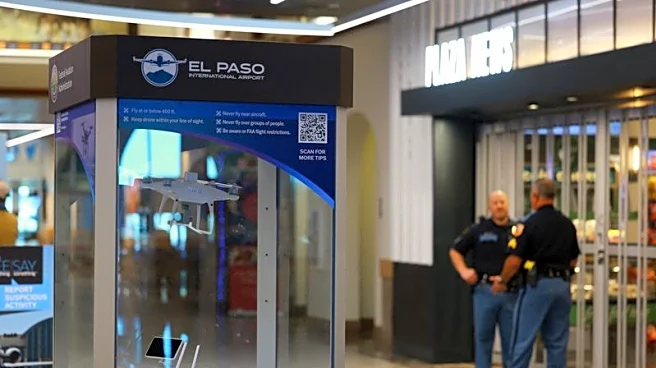What's Happening?
Wine tourism in Europe is experiencing a significant increase in interest, particularly among younger travelers aged 18 to 44. A study by TUI Musement indicates that over 91% of this demographic are highly interested in wine trips, seeking immersive cultural and food experiences. The European Wine Tourism Index, launched by TUI Musement, provides a detailed guide to top wine destinations, evaluating them based on vineyard land, protected designation of origin (PDO) or protected geographical indication (PGI) wines, wine production, and international awards. France leads the ranking with a score of 85.2 out of 100, offering renowned wine experiences in regions like Champagne, Burgundy, and Bordeaux. Italy and Spain follow closely, with Italy boasting the highest number of PDO/PGI wines and Spain offering diverse vineyard landscapes.
Why It's Important?
The rise in wine tourism reflects a broader trend towards experiential travel, where tourists seek meaningful and personalized experiences. This shift has significant implications for the tourism industry, encouraging destinations to innovate and offer unique cultural and sensory experiences. The focus on wine tourism can boost local economies, particularly in rural areas, by attracting visitors to lesser-known regions and promoting local products. Additionally, it highlights the importance of sustainable tourism practices, as destinations must balance increased visitor numbers with preserving cultural heritage and environmental resources.
What's Next?
As wine tourism continues to grow, destinations are likely to expand their offerings to cater to this demand. This could include more vineyard tours, harvest festivals, and specialized tastings. The industry may also see increased collaboration between tourism boards and local producers to enhance the visitor experience. Furthermore, there may be a push towards sustainable practices to ensure the long-term viability of wine tourism, such as eco-friendly accommodations and transportation options.
Beyond the Headlines
The growth of wine tourism also raises questions about the cultural impact on local communities and the preservation of traditional practices. As more travelers seek authentic experiences, there is potential for cultural exchange and increased awareness of regional histories and traditions. However, destinations must navigate the challenges of overtourism and ensure that the influx of visitors does not compromise the integrity of local cultures or lead to environmental degradation.










